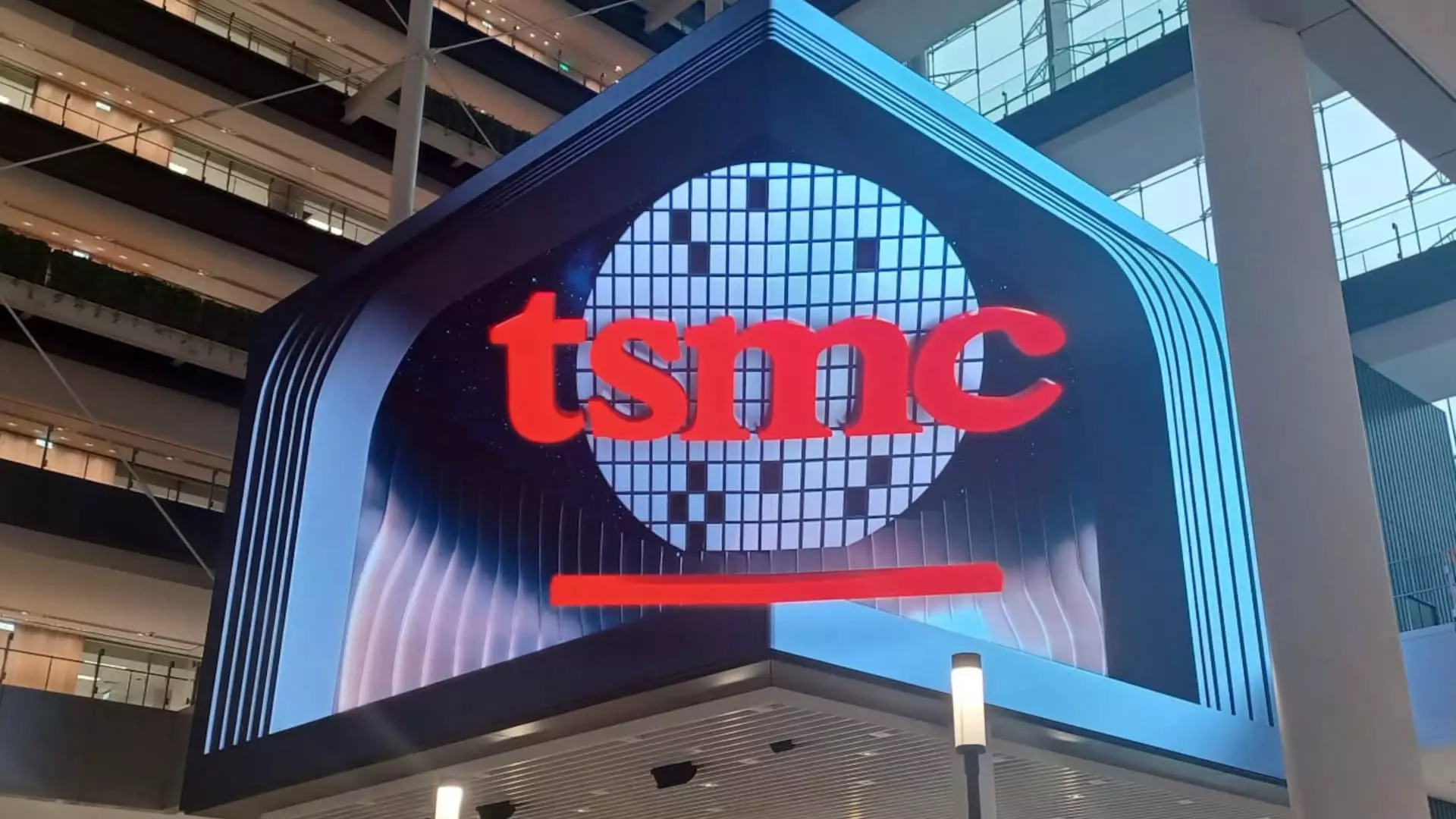Taiwan Semiconductor Manufacturing Company (TSMC) recently announced its fourth-quarter results, which highlighted the firm’s impressive financial performance that surpassed market expectations. The company reported net revenue of 868.46 billion New Taiwan dollars (approximately $26.36 billion) compared to the anticipated 850.08 billion New Taiwan dollars. Furthermore, its net income reached NT$374.68 billion, exceeding the predicted NT$366.61 billion. This financial upswing reflects a staggering 57% increase in profit compared to the same quarter of the previous year, along with a remarkable 38.8% surge in revenue.
TSMC’s optimistic forecast for the quarter projected revenue between $26.1 billion and $26.9 billion, demonstrating the company’s adeptness in navigating the complexities of the semiconductor market. This is especially notable considering the volatile nature of the tech industry and the significant demand fluctuations that characterize it.
The recent surge in demand for advanced semiconductors, especially in relation to artificial intelligence applications, has significantly contributed to TSMC’s stellar performance. The company, the largest contract chip manufacturer globally, serves prominent clients such as Nvidia and Apple. TSMC’s high-performance computing (HPC) division, which caters to AI and 5G requirements, proved instrumental in this financial success, driving a substantial 53% of total revenue for the fourth quarter. Notably, revenue from this segment rose by 19% from the prior quarter.
Brady Wang, an associate director at Counterpoint Research, emphasized the unprecedented demand for AI chips in the fourth quarter. The appeal of TSMC’s products has been further strengthened by the requirement for advanced chipsets in Apple’s latest iPhone 16, illustrating the interconnected nature of the tech industry and how advancements in one area can significantly influence others.
2024 has been a watershed year for TSMC, as the total annual revenue reached a remarkable NT$2.9 trillion. This marks a historic milestone for the company, establishing it as a powerhouse in the global semiconductor sphere since its public listing in 1994. According to Wendell Huang, the Chief Financial Officer at TSMC, the company foresees sustained robust demand for AI-related products throughout 2024, with AI accelerator revenues contributing around “close to a mid-teens percentage” of total income.
Huang also forecasted that despite a tumultuous market landscape, revenue from AI accelerator products would likely double in 2025, primarily driven by the escalating demand for AI applications. This outlook showcases TSMC’s commitment to adapting to market trends, maintaining its leading position as AI technology evolves.
While the immediate future seems bright for TSMC, potential challenges lie ahead. U.S. restrictions on advanced chip exports to China could pose significant hurdles for the company in 2025. The trade administration policies anticipated under the incoming administration of President-elect Donald Trump may result in a more confrontational economic stance towards Taiwan and its tech industry. TSMC’s Chairman and CEO, C.C. Wei, issued a statement regarding the company’s stance on maintaining a low profile and indicated that the company would abstain from participating in political events, including Trump’s inauguration.
Despite these challenges, analysts like Brady Wang remain optimistic about TSMC’s prospects for 2025. They expect continued growth, driven by the increasing demand for AI technologies that are anticipated to evolve in both diversity and volume. As the tech landscape continues to shift, TSMC’s adaptability and pioneering advancements in semiconductor technologies will play a crucial role in its sustained success.
Stock Market Reactions
Investors have responded positively to TSMC’s impressive earnings, as evidenced by the upward trajectory of its stock prices. In 2024 alone, TSMC’s shares surged by 81%, indicating significant confidence among investors regarding the firm’s future. On the same day the earnings were announced, shares traded up by 3.75%, reflecting robust investor sentiment. European semiconductor companies are also witnessing corresponding stock price increases, with ASML, ASM International, and Besi showing substantial gains on the Euronext Amsterdam Stock Exchange.
TSMC’s fourth-quarter performance and full-year achievements are not only reflective of the company’s innovation and forward-thinking approach but also underscore the profound impact of the burgeoning AI sector on the semiconductor industry. The ongoing demand for high-performance chips is likely to shape TSMC’s strategies in the coming years, and despite potential geopolitical obstacles, the firm’s fundamentals appear strong as it moves into 2025 and beyond.

Leave a Reply